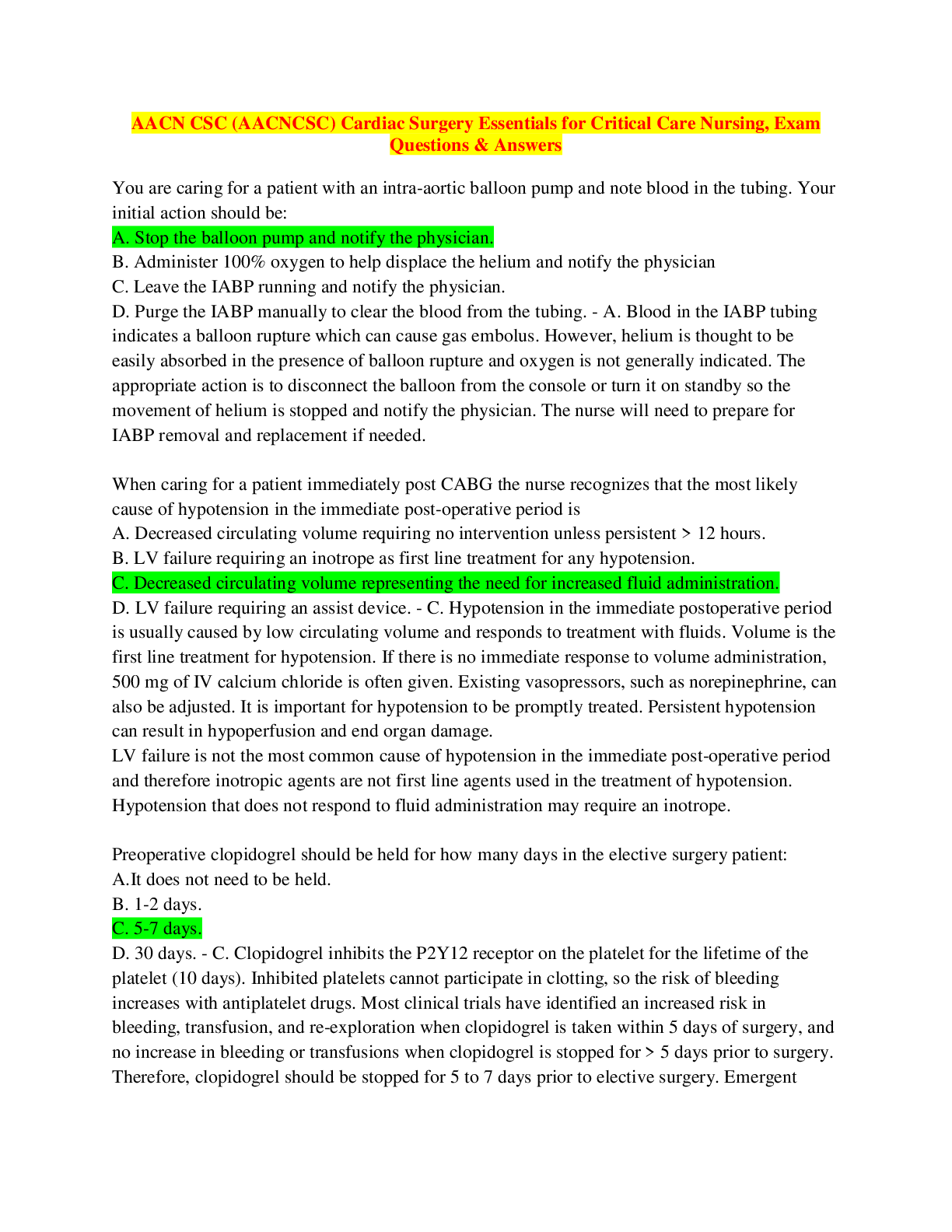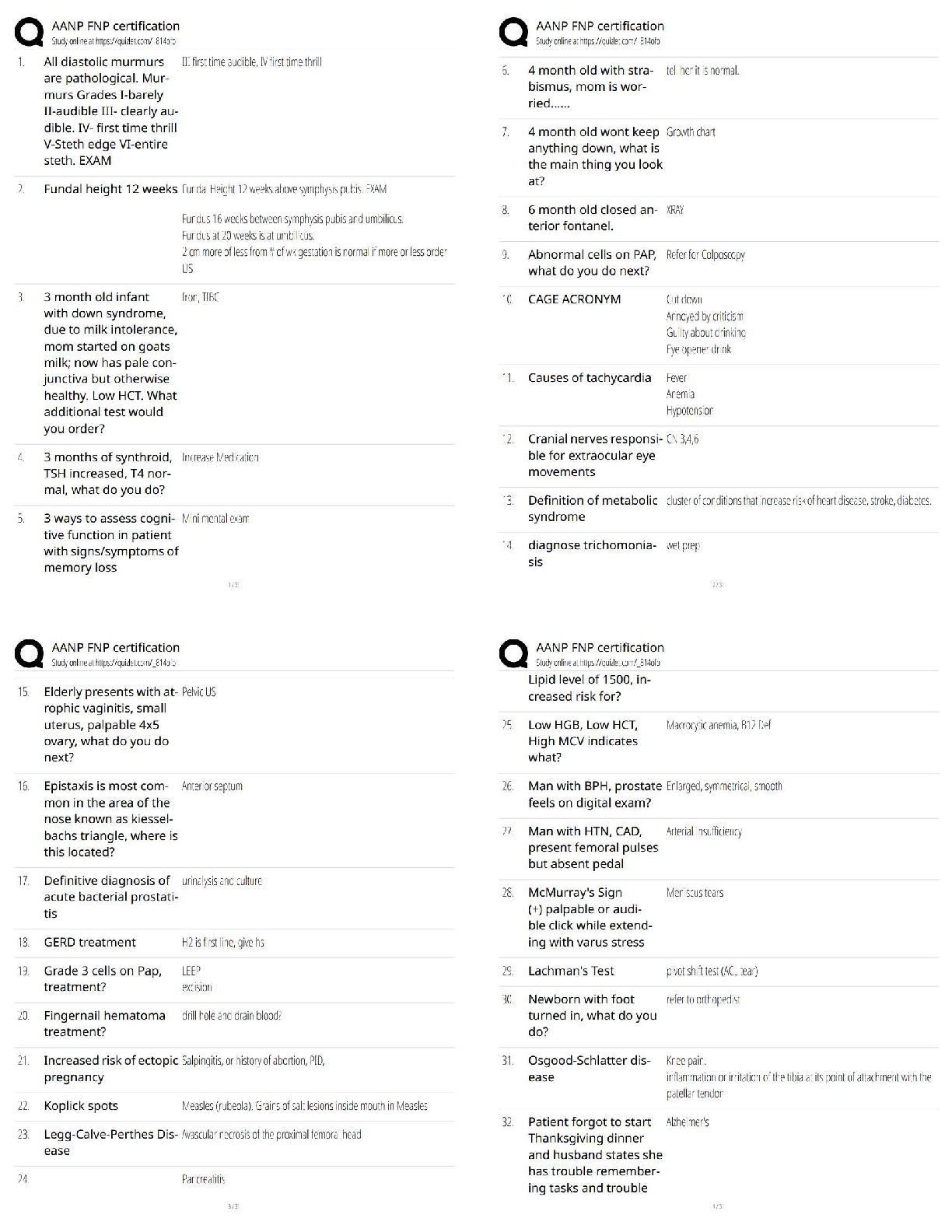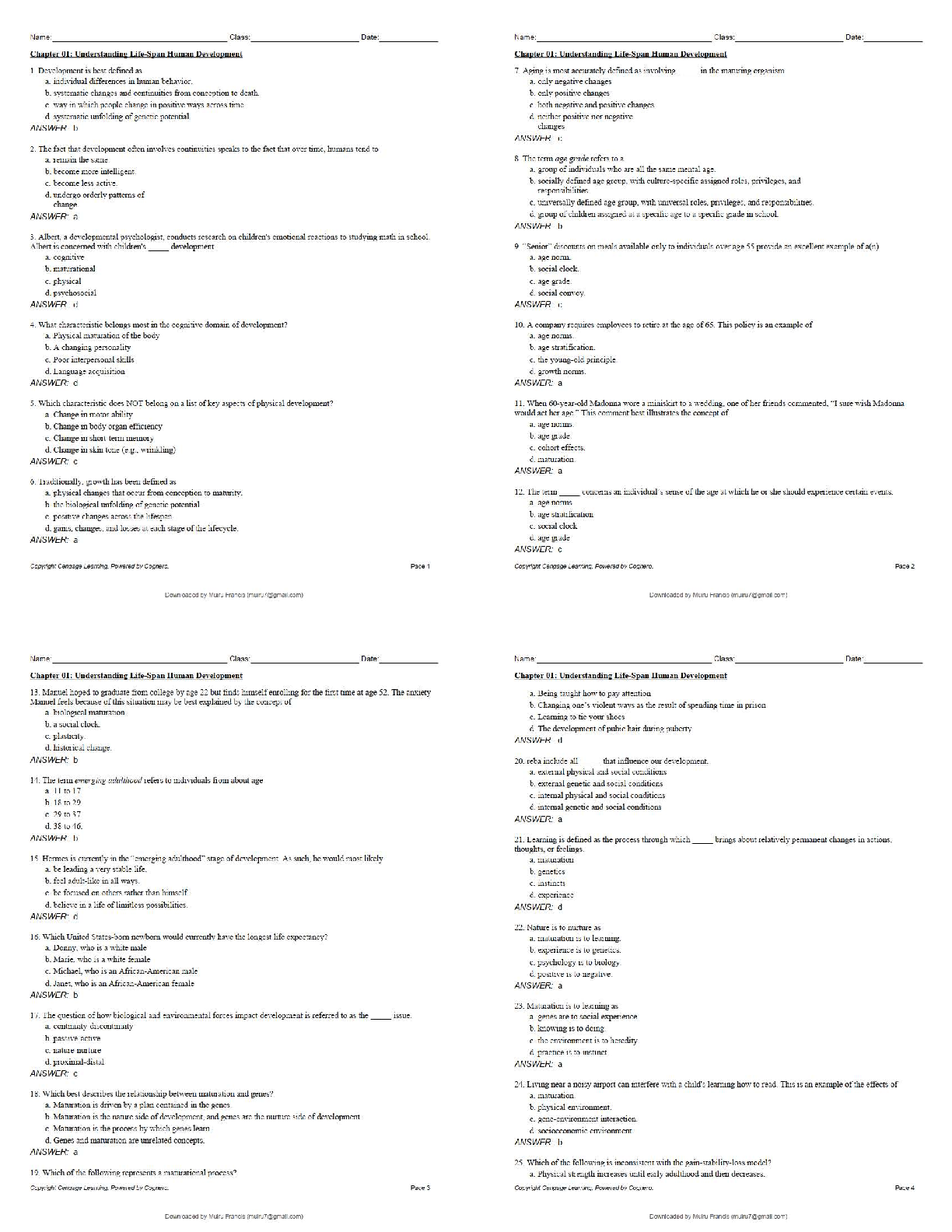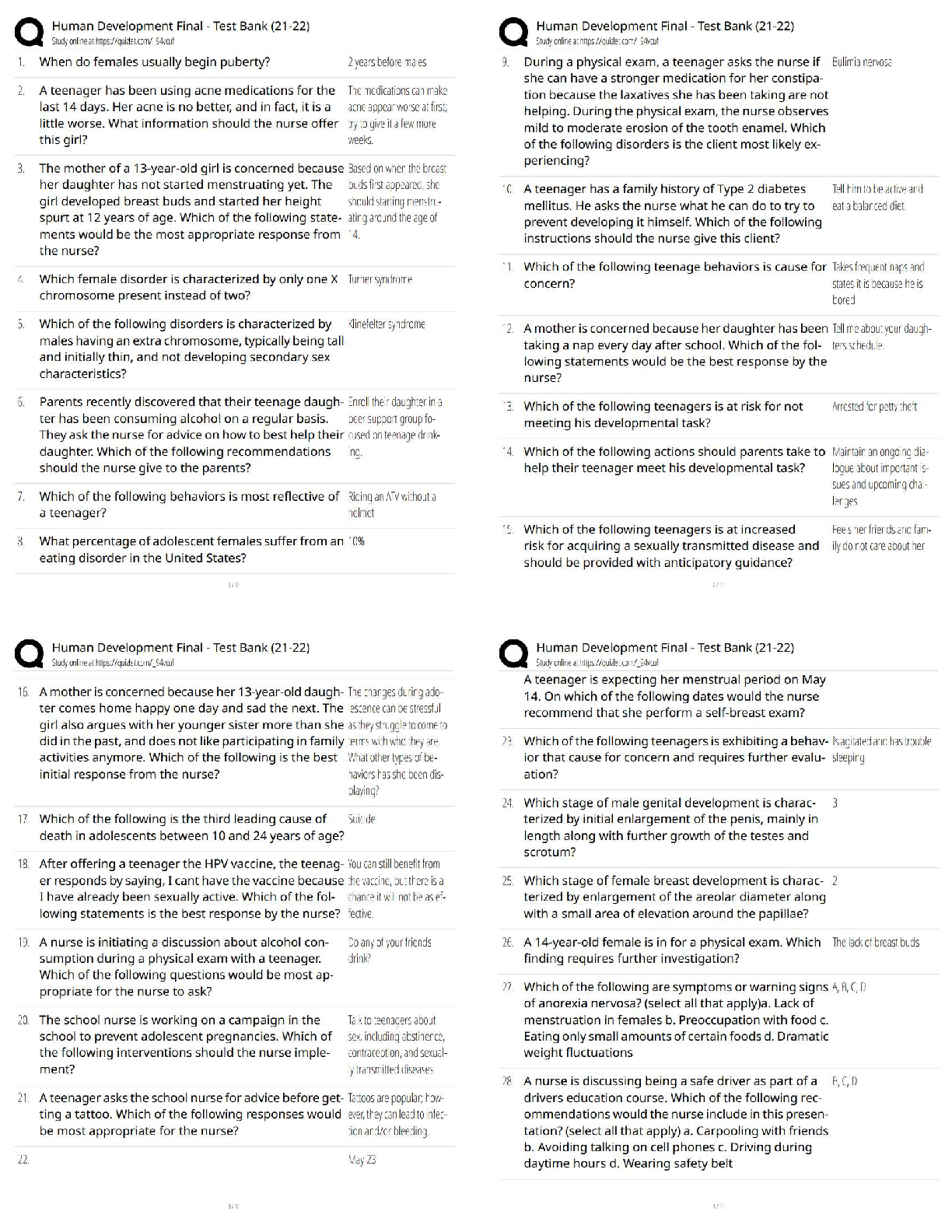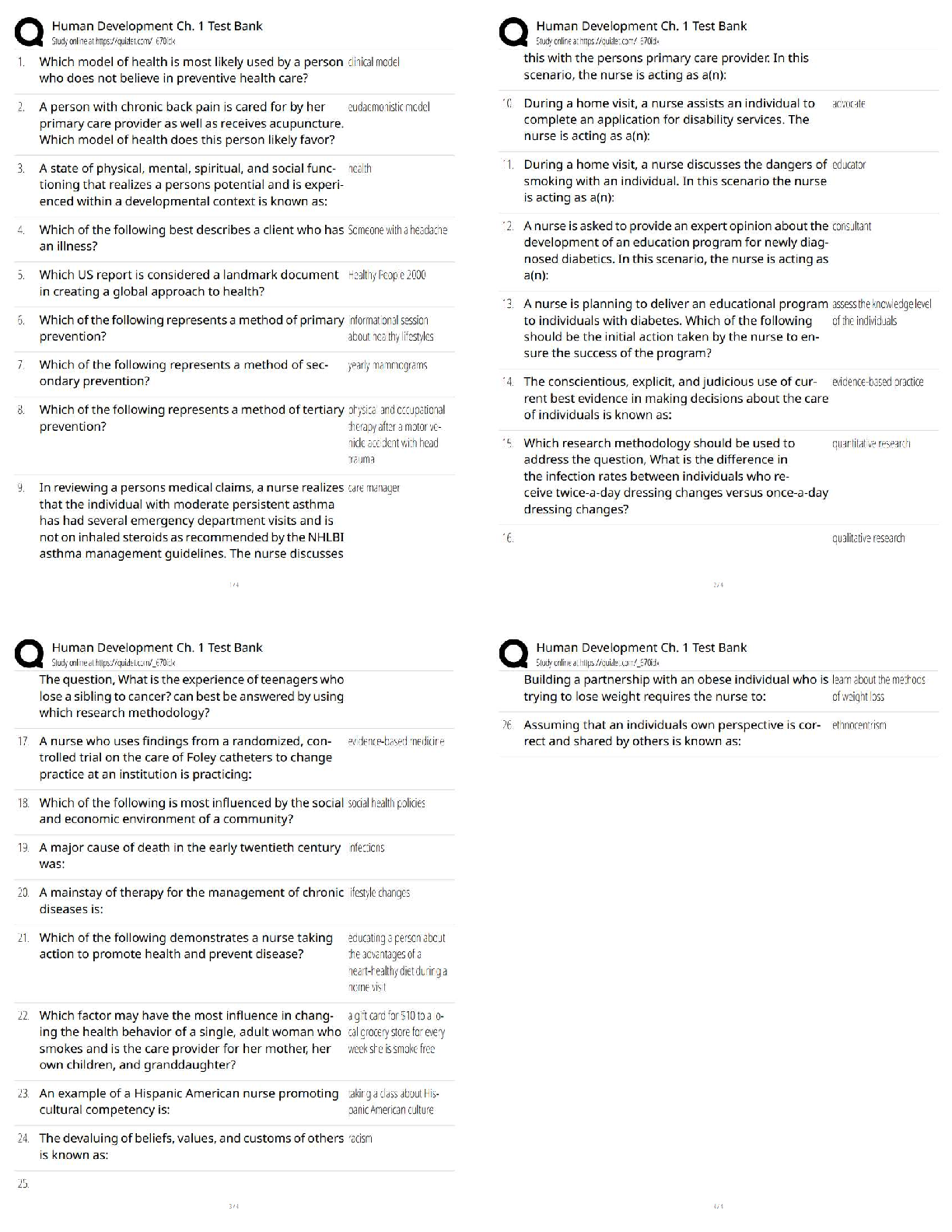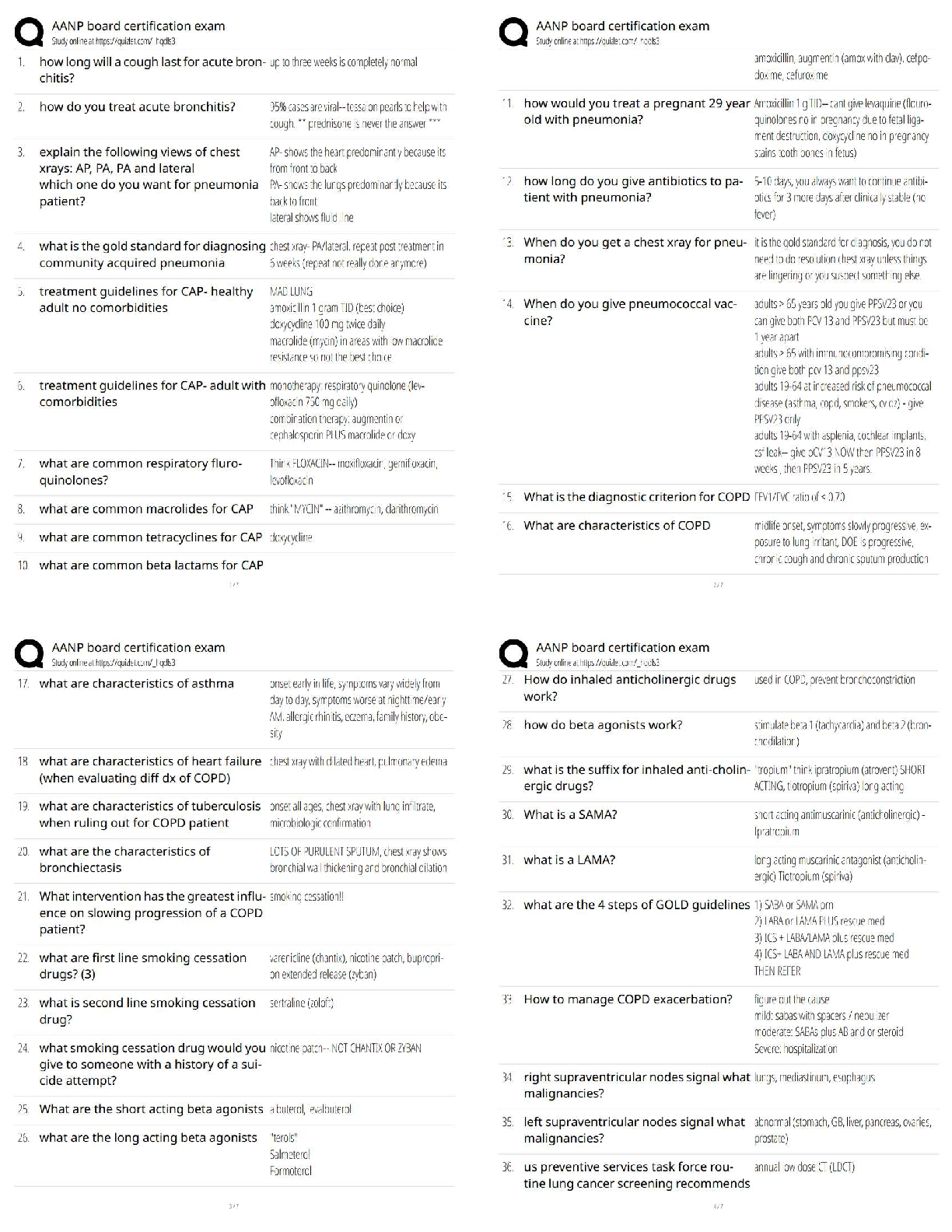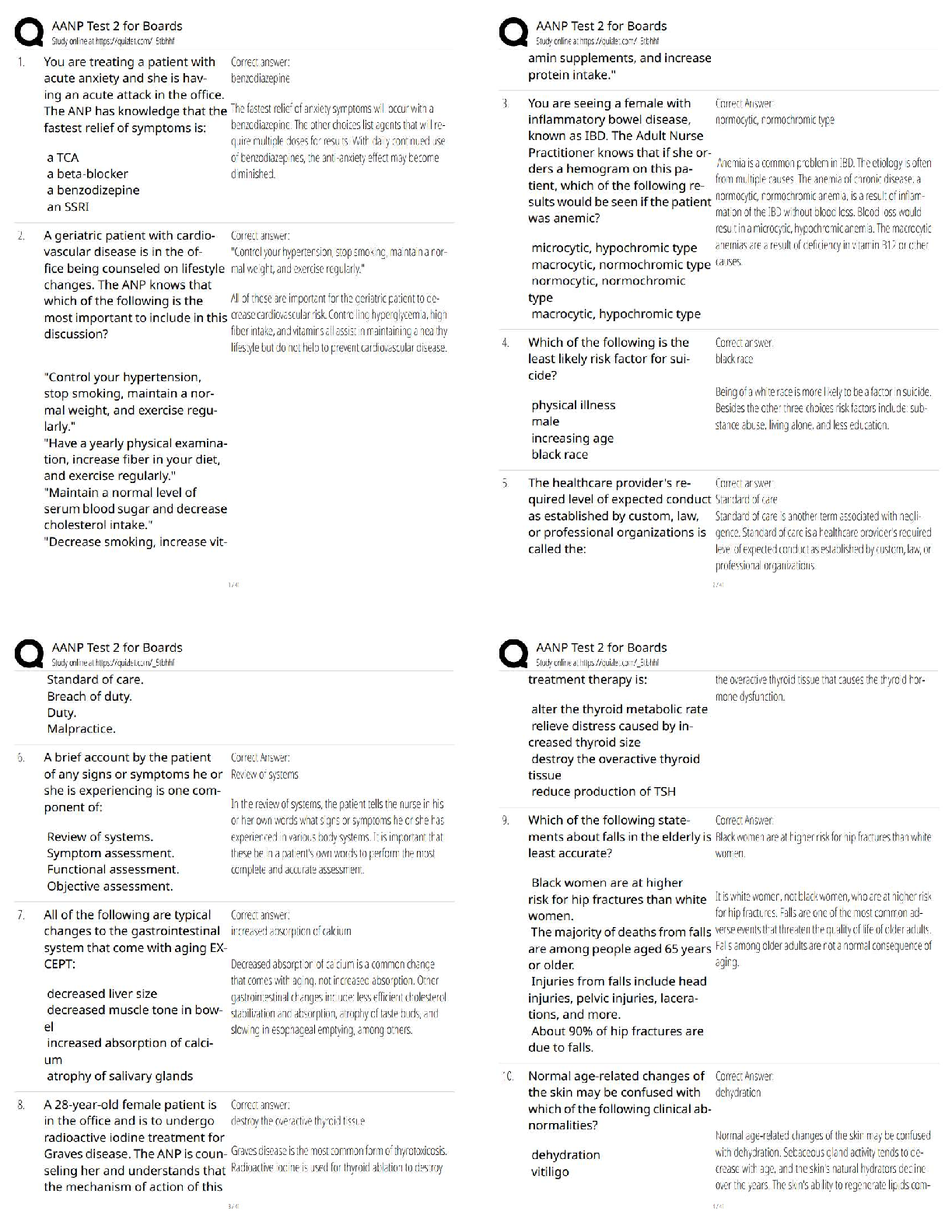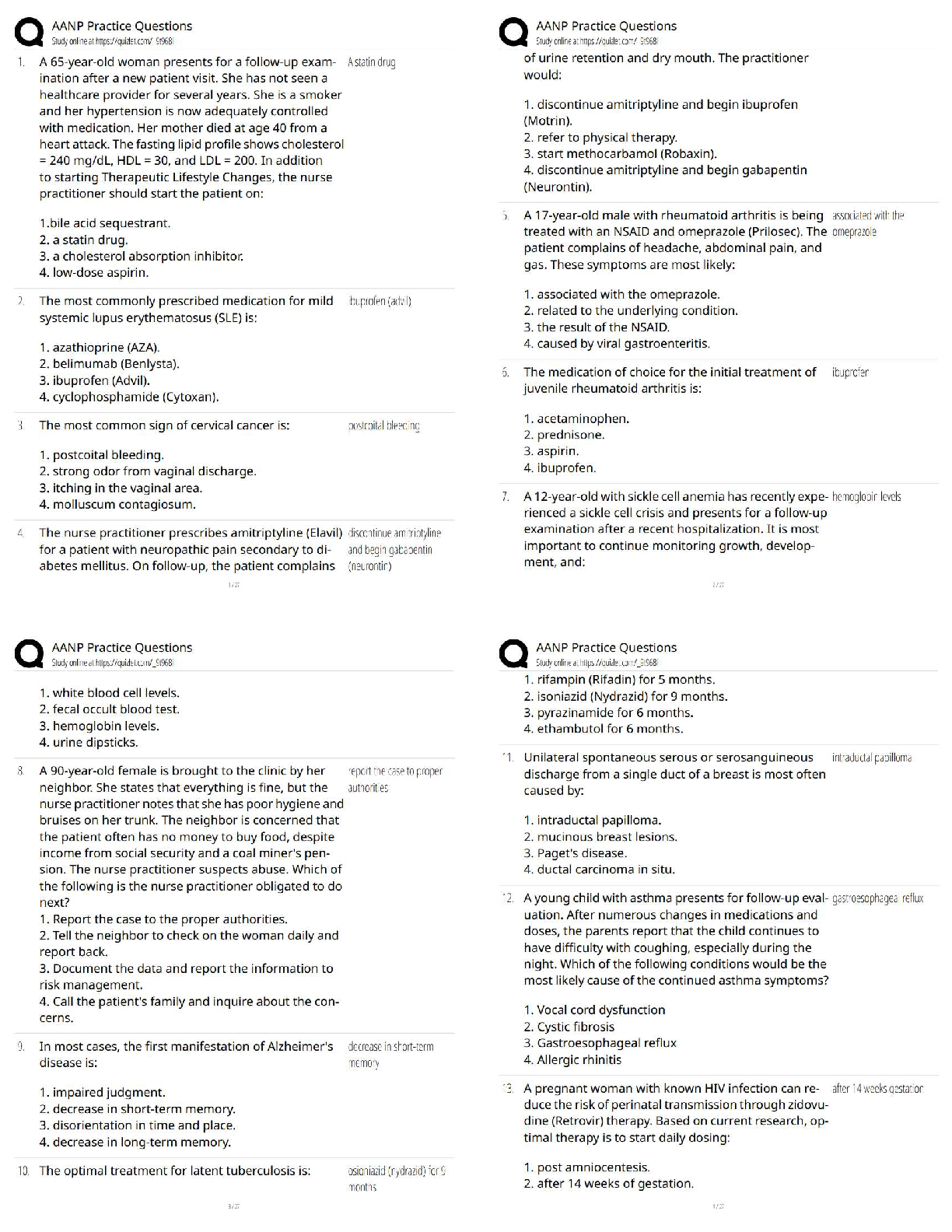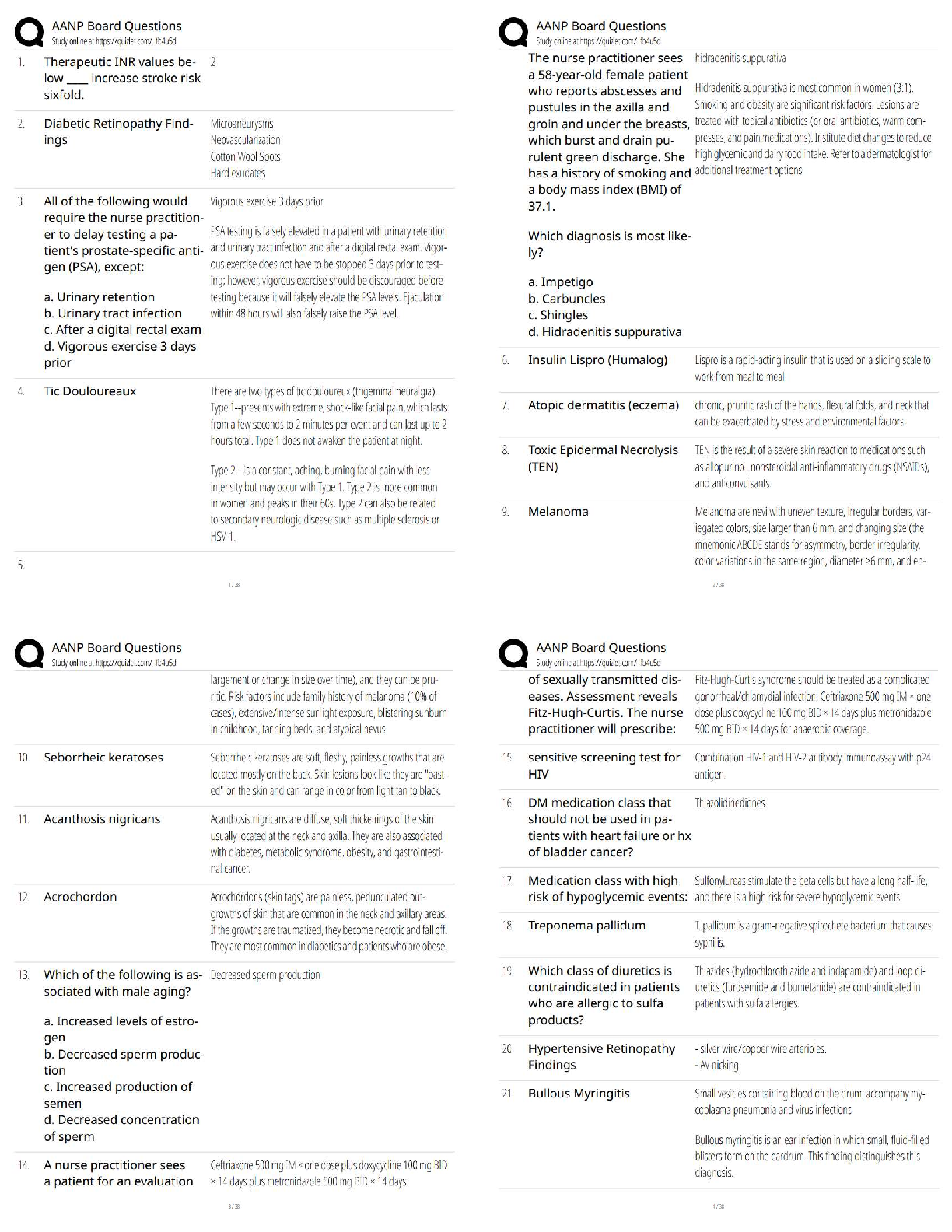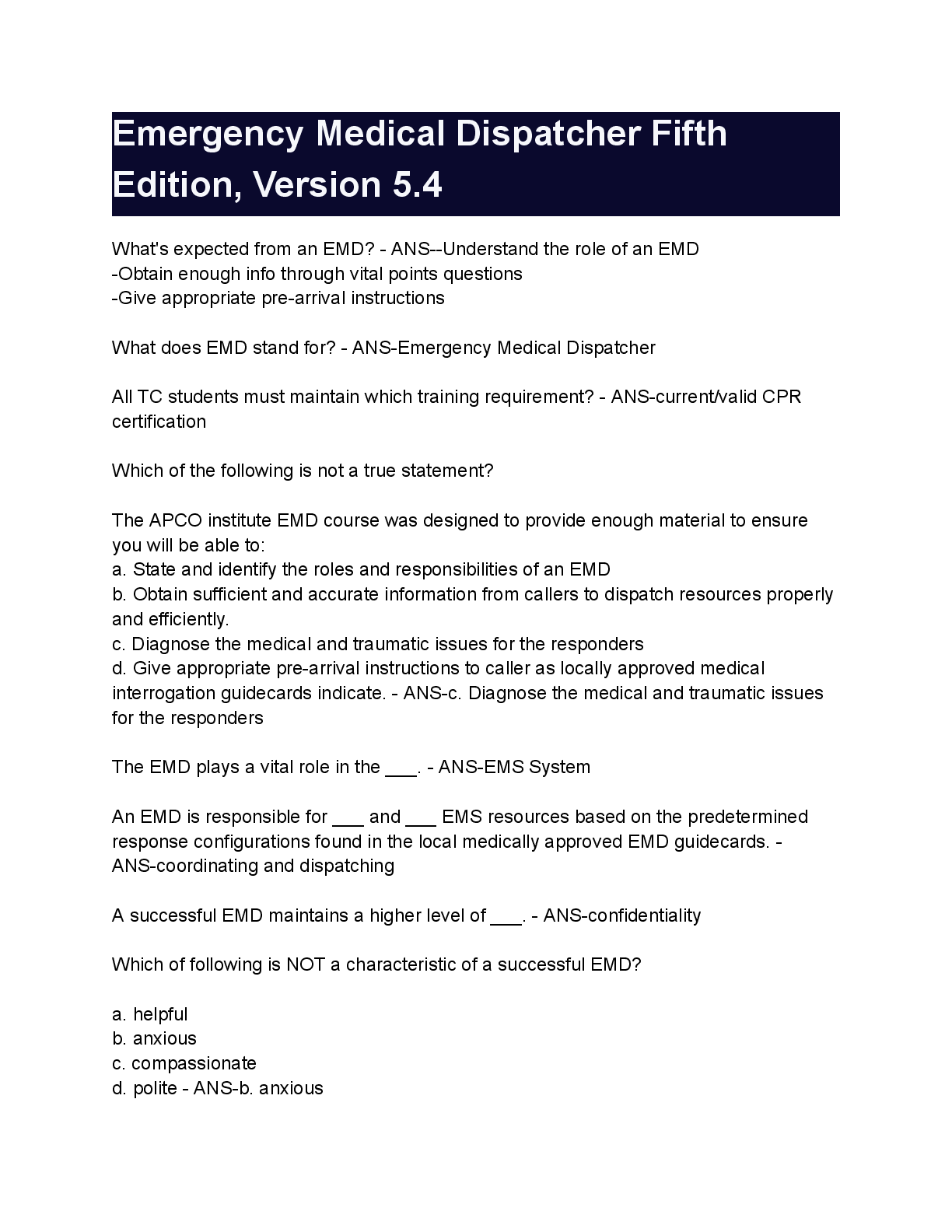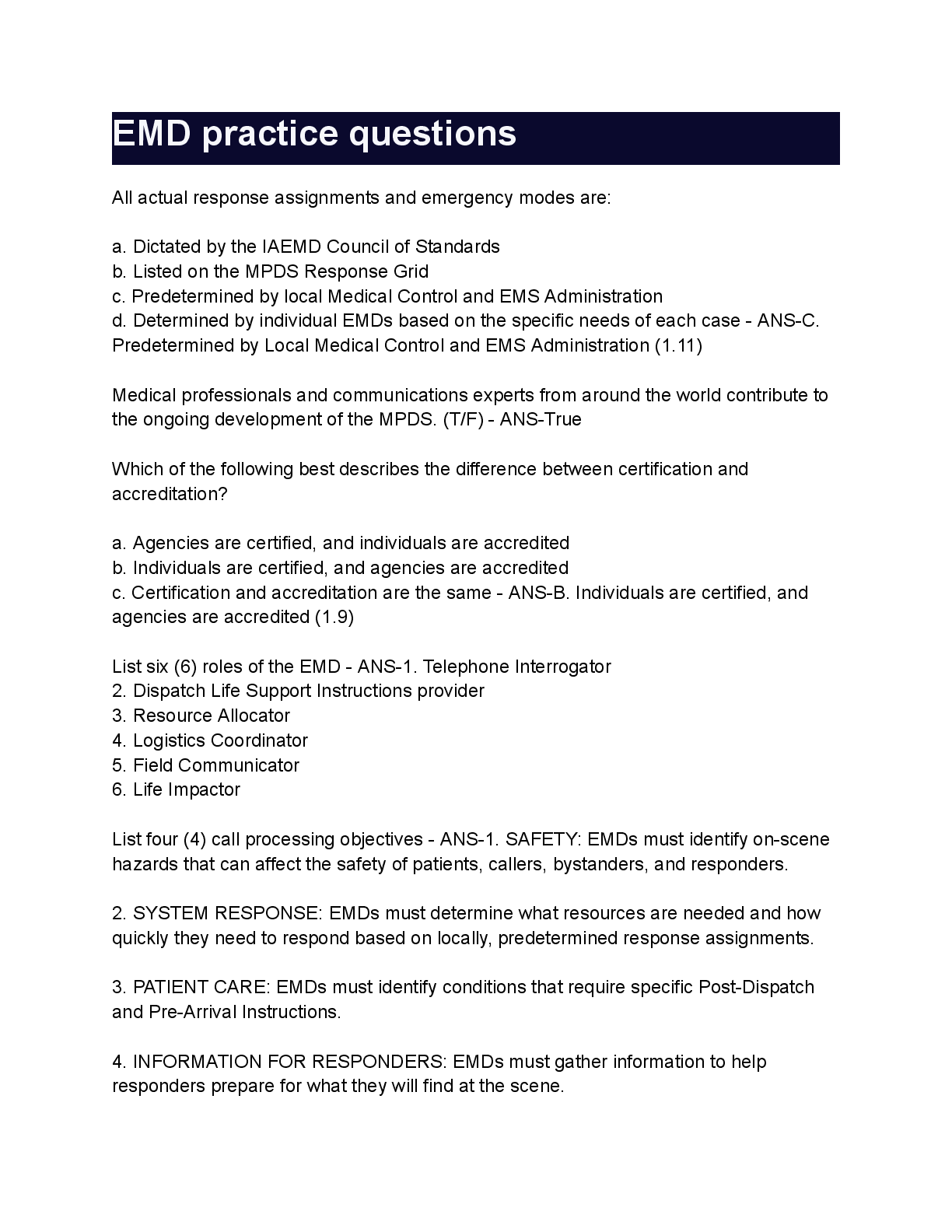*NURSING > QUESTIONS & ANSWERS > ATI MEDSURG Fluid and Electrolytes (All)
ATI MEDSURG Fluid and Electrolytes
Document Content and Description Below
ATI MEDSURG Fluid and Electrolytes-You are caring for a patient who has a diagnosis of syndrome of inappropriate antidiuretic hormone secretion (SIADH). Your patient’s plan of care includes assessme ... nt of specific gravity every 4 hours. The 1. results of this test will allow the nurse to assess what aspect of the patient’s health? A) Nutritional status B) Potassium balance C) Calcium balance D) Fluid volume status Ans: D Feedback: A specific gravity will detect if the patient has a fluid volume deficit or fluid volume excess. Nutrition, potassium, and calcium levels are not directly indicated. You are caring for a patient admitted with a diagnosis of acute kidney injury. When you review your patient’s most recent laboratory reports, you note that the patient’s magnesium levels are high. You should 2. prioritize assessment for which of the following health problems?G A) Diminished deep tendon reflexes B) Tachycardia C) Cool, clammy skin D) Acute flank pain Ans: A Feedback: To gauge a patient’s magnesium status, the nurse should check deep tendon reflexes. If the reflex is absent, this may indicate high serum magnesium. Tachycardia, flank pain, and cool, clammy skin are not typically associated with hypermagnesemia. You are working on a burns unit and one of your acutely ill patients is exhibiting signs and symptoms of third spacing. Based on this change in status, you should expect the patient to exhibit signs and symptoms 3. of what imbalance? A) Metabolic alkalosis B) Hypermagnesemia C) Hypercalcemia D) Hypovolemia Ans: D Feedback: Third-spacing fluid shift, which occurs when fluid moves out of the intravascular space but not into the intracellular space, can cause hypovolemia. Increased calcium and magnesium levels are not indicators of third-spacing fluid shift. Burns typically cause acidosis, not alkalosis. A patient with a longstanding diagnosis of generalized anxiety disorder presents to the emergency room. The triage nurse notes upon assessment that the patient is hyperventilating. The triage nurse is aware that 4. hyperventilation is the most common cause of which acid–base imbalance? A) Respiratory acidosis B) Respiratory alkalosis C) Increased PaCO2 D) CNS disturbances Ans: B Feedback: The most common cause of acute respiratory alkalosis is hyperventilation. Extreme anxiety can lead to hyperventilation. Acute respiratory acidosis occurs in emergency situations, such as pulmonary edema, and is exhibited by hypoventilation and decreased PaCO2. CNS disturbances are found in extreme hyponatremia and fluid overload. You are an emergency-room nurse caring for a trauma patient. Your patient has the following arterial 5. blood gas results: pH 7.26, PaCO2 28, HCO3 11 mEq/L. How would you interpret these results? A) Respiratory acidosis with no compensation B) Metabolic alkalosis with a compensatory alkalosis C) Metabolic acidosis with no compensation D) Metabolic acidosis with a compensatory respiratory alkalosis Ans: D Feedback: A low pH indicates acidosis (normal pH is 7.35 to 7.45). The PaCO3 is also low, which causes alkalosis. The bicarbonate is low, which causes acidosis. The pH bicarbonate more closely corresponds with a decrease in pH, making the metabolic component the primary problem. You are making initial shift assessments on your patients. While assessing one patient’s peripheral IV site, you note edema around the insertion site. How should you document this complication related to IV 6. therapy? A) Air emboli B) Phlebitis C) Infiltration D) Fluid overload Ans: C [Show More]
Last updated: 11 months ago
Preview 1 out of 31 pages
Buy this document to get the full access instantly
Instant Download Access after purchase
Buy NowInstant download
We Accept:

Also available in bundle (1)
Click Below to Access Bundle(s)
ATI MEDSURG Fluid and Electrolytes Bundle, All questions and answers exams already graded A
ATI MEDSURG Fluid and Electrolytes Bundle, All questions and answers exams already graded A
By PROF 4 years ago
$60
8
Reviews( 0 )
$14.00
Can't find what you want? Try our AI powered Search
Document information
Connected school, study & course
About the document
Uploaded On
Jun 10, 2021
Number of pages
31
Written in
All
Additional information
This document has been written for:
Uploaded
Jun 10, 2021
Downloads
0
Views
144







